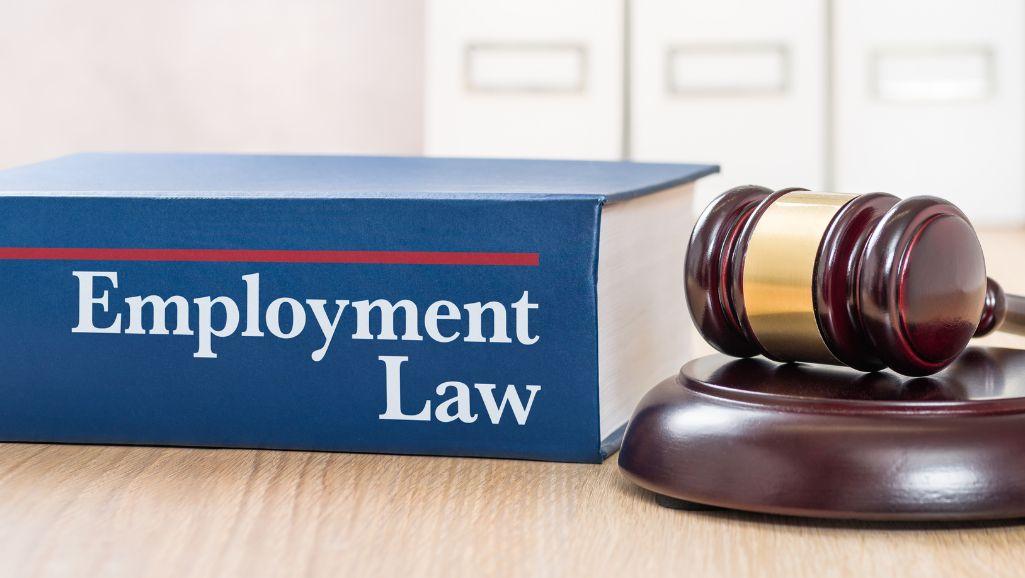Employment Lawyers, also known as labor lawyers, are legal professionals who specialize in matters related to employment and labor law. They provide legal advice and representation to both employees and employers in a wide range of workplace-related issues. Employment lawyers have in-depth knowledge of the complex legal regulations and statutes that govern the employer-employee relationship.
This comprehensive guide will explore when the need for an employment lawyer arises, why their services are crucial, and how employees can navigate the process of hiring the right legal professional.

When to Hire an Employment Lawyer
When faced with certain challenges in the workplace, enlisting the expertise of an employment lawyer can prove to be a prudent decision.
Complex Workplace Issues:
- Discrimination or Harassment Cases: If an employee experiences discrimination or harassment based on protected characteristics such as race, gender, or religion, an employment lawyer can help navigate the legal process to seek justice and remedies.
- Wrongful Termination: In cases of suspected unjust dismissal, an employment lawyer can assess the situation and determine if legal action is viable.
Contract Disputes:
- Non-Compete Agreements: Employment lawyers can provide advice on the enforceability and implications of non-compete agreements, ensuring employees’ rights are upheld.
- Breach of Contract: When a breach of employment contract occurs, an attorney can help employees understand their rights and options for resolution.
Workplace Injuries and Compensation Claims:
If an employee sustains injuries on the job and faces challenges obtaining rightful compensation, an employment lawyer can assist in navigating workers’ compensation claims.
Why You Need an Employment Lawyer
Engaging an employment lawyer offers several advantages that safeguard an employee’s interests and rights:
- Protecting Rights and Interests: Employment lawyers act as advocates, ensuring employees’ rights are upheld throughout legal proceedings.
- Navigating Complex Legal Procedures: Legal processes can be convoluted, but with an employment lawyer’s guidance, employees can navigate paperwork, deadlines, and court appearances effectively.
- Maximizing Compensation and Benefits: An employment lawyer’s negotiation skills can help employees secure fair compensation, benefits, and settlements.
How to Choose and Hire an Employment Lawyer
Selecting the right employment lawyer involves careful consideration and a structured approach:
- Research and Referrals: Seek recommendations from trusted sources or professional networks. Research online reviews and credentials to gauge an attorney’s reputation and experience.
- Initial Consultation: During the consultation, inquire about the lawyer’s experience with cases similar to yours. Understand the attorney’s fee structure, potential costs, and payment options.
- Clear Communication and Rapport: Effective communication and a good rapport are vital for a successful attorney-client relationship.
The procedure an Employee Should Take When Hiring an Employment Lawyer
Navigating the process of hiring an employment lawyer involves these essential steps:
- Gathering Relevant Documentation: Compile any employment contracts, communication records, or evidence relevant to your case.
- Outlining Key Issues and Concerns: Communicate your concerns and goals during initial discussions with the attorney.
- Following Attorney’s Advice and Guidance: Adhere to the attorney’s recommendations and guidance throughout the legal process.
Case Studies: Real-Life Examples
Discrimination Case Resolution:
Sarah, a dedicated marketing professional, found herself trapped in a hostile work environment marred by gender-based discrimination. Despite her exceptional skills and contributions, she faced unequal treatment, unjust performance evaluations, and even derogatory comments from her superiors. Frustrated and seeking justice, Sarah decided to consult an employment lawyer.
Key Steps Taken:
- Legal Assessment: Sarah’s employment lawyer meticulously reviewed her case, analyzing the evidence she had gathered, including emails, performance reviews, and witness statements.
- Demand Letter: The lawyer crafted a compelling demand letter, outlining the discriminatory actions Sarah had endured and the legal consequences the company could face if the issue remained unresolved.
- Negotiation: The company’s legal representatives engaged in negotiations with Sarah’s lawyer. The employment lawyer’s firm resolve and legal acumen helped secure a settlement that not only included financial compensation but also required the company to implement diversity training and anti-discrimination policies.
Successful Wrongful Termination Claim:
John, a dedicated IT specialist, had always taken his job seriously, prioritizing the safety of his colleagues by addressing concerns about inadequate cybersecurity measures. His commitment to workplace safety led to tension with the management. Determined to vindicate his reputation and secure justice, John sought the guidance of an employment lawyer.
Key Steps Taken:
- Case Analysis: John’s employment lawyer meticulously examined the circumstances leading to his termination. They gathered performance records, communication logs, and witness statements to build a comprehensive case.
- Legal Filing: With a strong case in hand, John’s lawyer filed a wrongful termination claim against the company, asserting that his dismissal was a direct result of his efforts to ensure a safe working environment.
- Mediation and Settlement: The case entered mediation, where John’s lawyer skillfully negotiated with the company’s legal team. The negotiations culminated in a settlement that not only reinstated John’s employment with back pay but also led to improved safety protocols within the company.
Employment lawyers are more than legal representatives; they are partners in advocating for employees’ rights and navigating the complexities of the workplace. By recognizing when to seek their assistance, understanding the reasons behind their necessity, and following a structured approach to hiring, employees can empower themselves to navigate workplace challenges with confidence and legal expertise at their side.
Also Read: Lawyer Drops Your Case? Find Out the Reasons, What’s Next, and Your Roadmap






